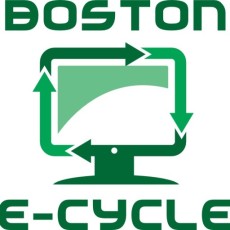Found a decent computer recycling video that goes a bit in-depth into how components are broken down:
Category: recycling
Types of Plastics (1-7)
Ever notice the variety of numbers inside the triangular recycling symbol? Essentially there are 7 different types of plastics that all range in varieties of production, composition, and safety levels. Most that have researched the mysterious numbers have discovered that numbers 2, 4, and 5 are the safest plastics to use for food storage and drinking from while number 1 is considered okay to use (while poor 3, 6, and 7 have been deemed harmful after long-term use).
Plastics can consist of soda bottles, water bottles, milk jugs, saran wrap, grocery bags, packaging containers, Styrofoam, and LEXAN (ranging from 1 to 7). Unfortunately, not all of these types of plastics are recyclable in numerous municipalities. This can be due to lack of processing and sorting equipment or people, or local sources that will be able to reuse the plastics in their products. In Boston alone, grocery bags, saran wrap, packing bubbles, and Styrofoam are some of the most prolific non-recyclable plastics for the area. There are some companies popping up that collect and reuse Styrofoam and packing peanuts to manufacture picture frames and tea or coffee cups. Although not always the best to constantly use during consumption of liquids, it’s better than the materials ending up in a landfill.
Overall, the best method is to limit your use of plastics overall. Instead of buying bottled water, just buy a decent filter for your sink or a water pitcher, and then use your own reusable water bottles. Although it’s very tough to avoid purchasing something without plastics, eventually we can hope that manufacturers make better decisions for the consumer in the near future.
Where does e-Waste go?
After our electronics reach end-of-life or break, where do they go? While some of these are reused or recycled responsibly, most of our e-waste ends up in landfills, incinerators, and villages around the globe. There has been a primary focus on commercial IT waste standards, along with numerous municipalities in the US that push for local electronic waste disposal. We also can’t forget about all of the other household items that are typically thrown away after becoming obsolete – dishwashers, washers/dryers, microwaves, televisions. While Boston e-Cycle does not take care of particular household appliances at this time, we are planning to work with other responsible recyclers in the New England area to make it easy to dispose of these items (and give you some peace of mind in doing so).
One major town in China that has taken a lot of US exported e-waste is Guiyu. Most of the inhabitants here have their own businesses that dismantle used electronics to extract valuable materials (such as gold, lead, and copper). It’s very scary to learn that multiple dust samples taken throughout the town’s environment contained unsafe amounts lead, as much as 50 times the amount that is considered “safe”.
With a bit of effort from everybody, we can help to reduce the amount of electronic waste that’s thrown away and sent off to towns like Guiyu. As our older commercial electronics continue to be disposed of, hopefully we can prevent the mass amount of improper disposal of this older equipment.
Recycling in Boston
Here’s a short video on recycling in Boston:
